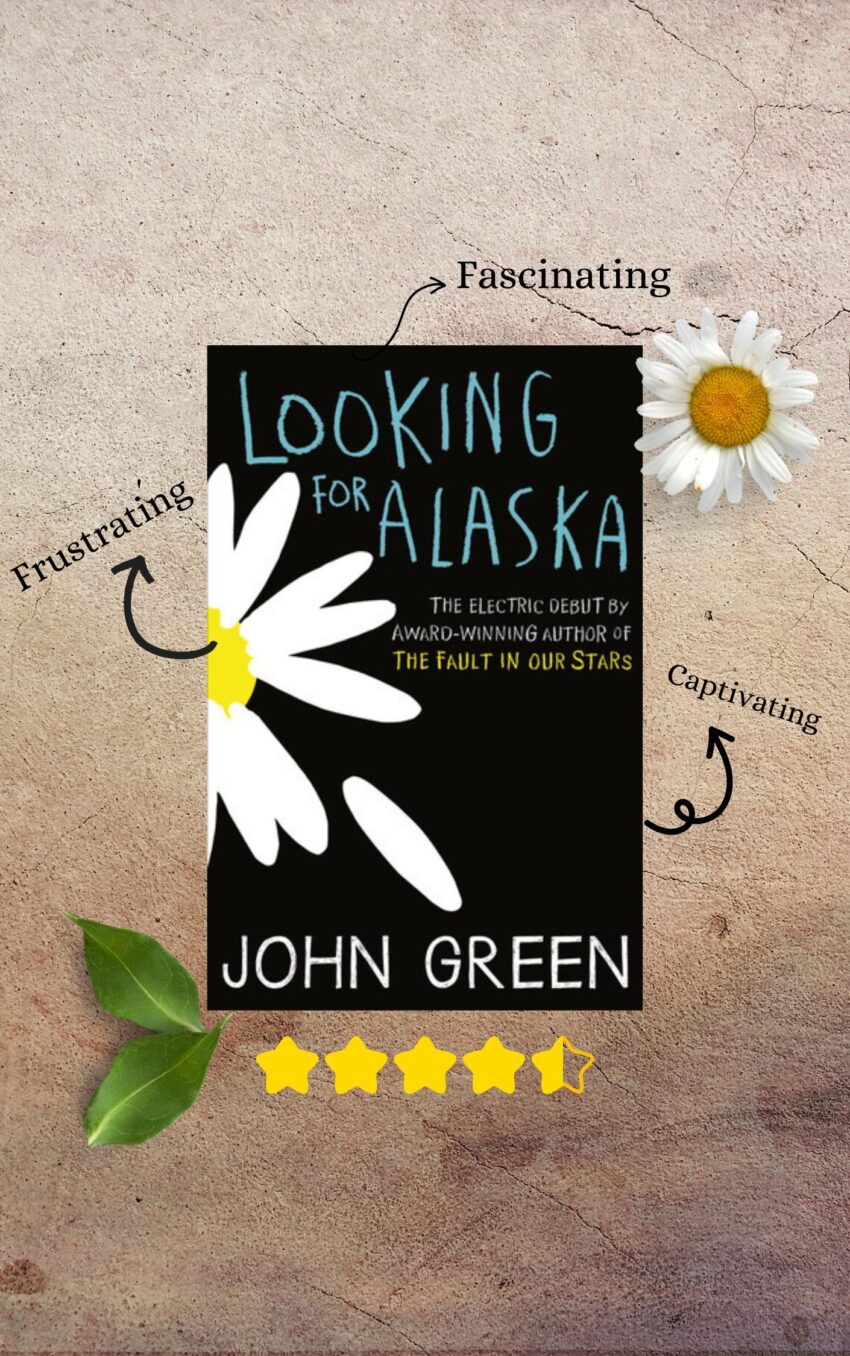Looking for Alaska by John Green hit me in a way I wasn’t quite expecting. When I picked it up, I was looking for something to pass the time, but by the time I finished, I felt like I had experienced something deeply personal. It’s one of those books that, in a way, feels like it was written just for you at the exact right time.
The novel follows Miles “Pudge” Halter, a teenager who feels out of place in his life, and his journey to find meaning at a boarding school in Alabama. From the very first pages, I connected with Pudge’s sense of being on the outside looking in. Like him, I’ve always been the quiet observer, someone who doesn’t quite feel like they belong. His fascination with last words struck a chord with me too, because I’ve always found comfort in things that are left behind—quotes, notes, pieces of something bigger than the moment itself. So, right away, the book felt like a reflection of my own thoughts.
But then there’s Alaska. She’s a whirlwind, beautiful and chaotic, with a darkness that’s impossible to ignore. I don’t think I’ve ever read a character quite like her. Her contradictions made me both want to understand her and run away from her, because she’s the kind of person who pulls you in but leaves you feeling lost. Alaska’s story—her struggles, her laughter, her sadness—made me reflect on the people in my own life who are similarly layered. People who are never just one thing, but always a blend of beauty and tragedy, and who, no matter how hard we try, we might never fully understand.
The whole book is divided into two parts, and the shift between them really rocked me. I won’t spoil it, but the grief that Pudge feels after Alaska’s death made me take a step back. Grief is strange, isn’t it? It comes in waves, sometimes overwhelming and sometimes quiet, but always with an undercurrent of confusion. I think this book captures that feeling perfectly. After Alaska’s death, the entire tone of the story changes, and the characters are left trying to piece together the parts of her that don’t make sense. That’s exactly how it feels when you lose someone, especially someone who was so unpredictable, so out of reach. It’s the unanswered questions that hang around long after they’re gone.
What really stuck with me, though, was the idea of the “labyrinth.” In the book, Alaska refers to life as a labyrinth—this messy, confusing thing that you can’t always make sense of. I’ve thought about that a lot since reading it, because I’m constantly trying to figure things out, always searching for a clear path. But maybe that’s the point. Life isn’t meant to be solved or explained. It’s meant to be lived, with all its beauty and its pain. And while I may never have the answers, there’s something comforting about knowing I’m not alone in that search.
Looking for Alaska isn’t just a book. It’s one of those rare stories that shifts your perspective. It reminds you that grief is part of love, that friendships can be the anchors in the chaos, and that sometimes the most important parts of people are the things we never fully understand. I finished the book feeling lighter but also more aware of the weight of things I hadn’t noticed before. And that, I think, is the mark of a truly special read.
